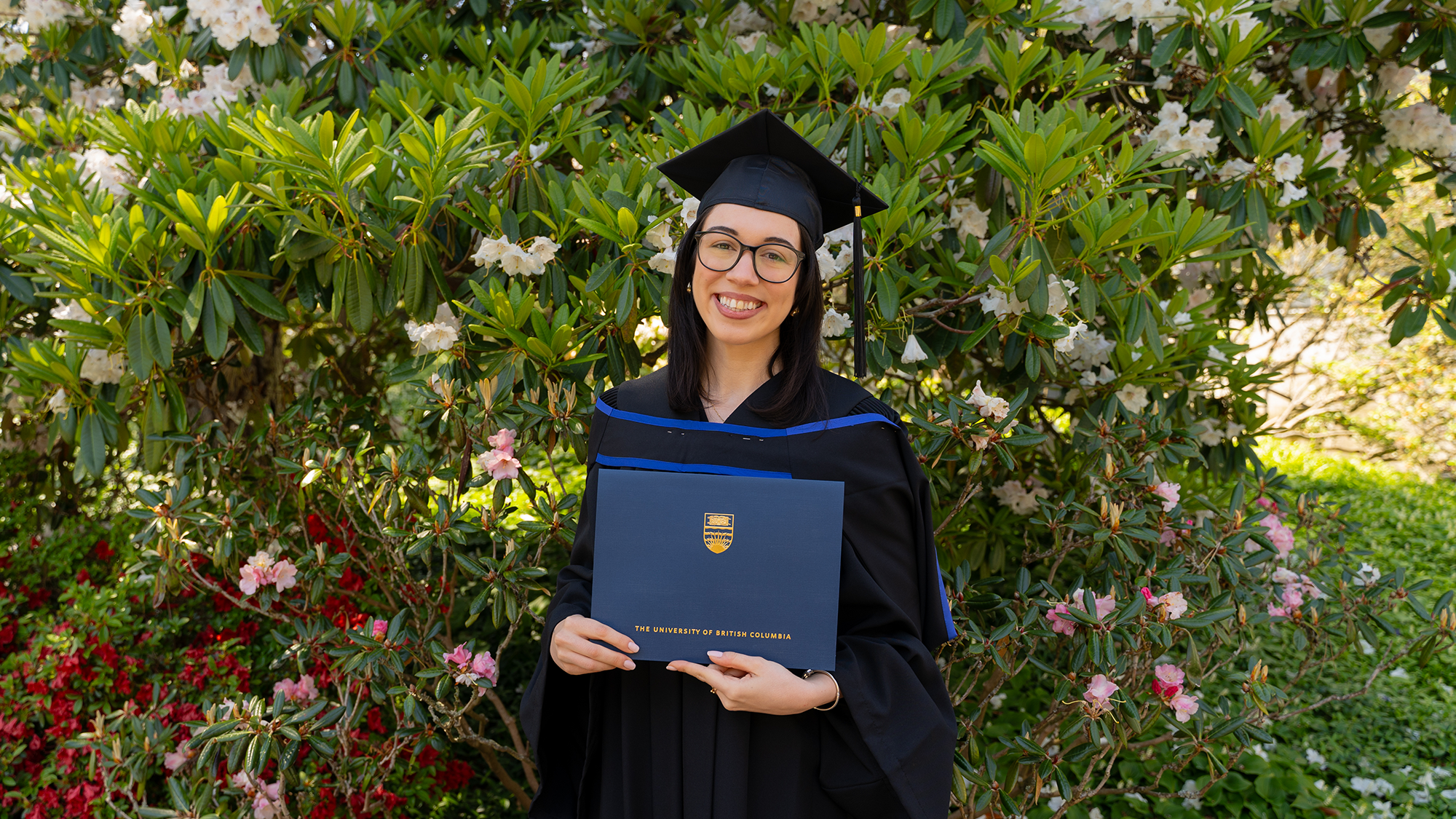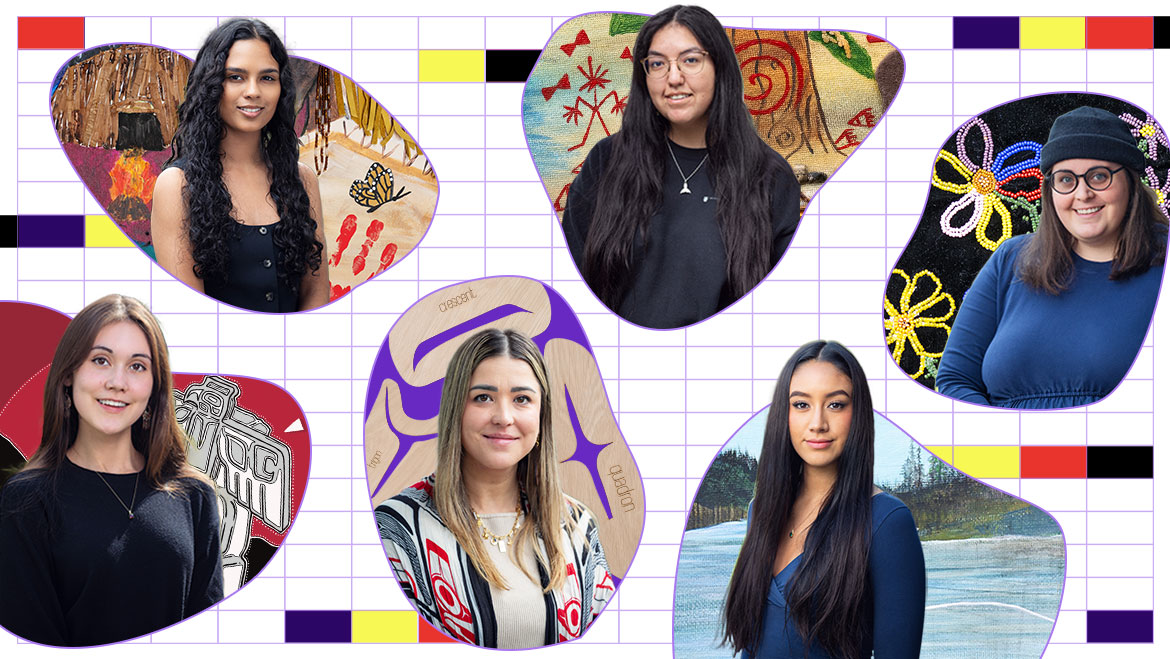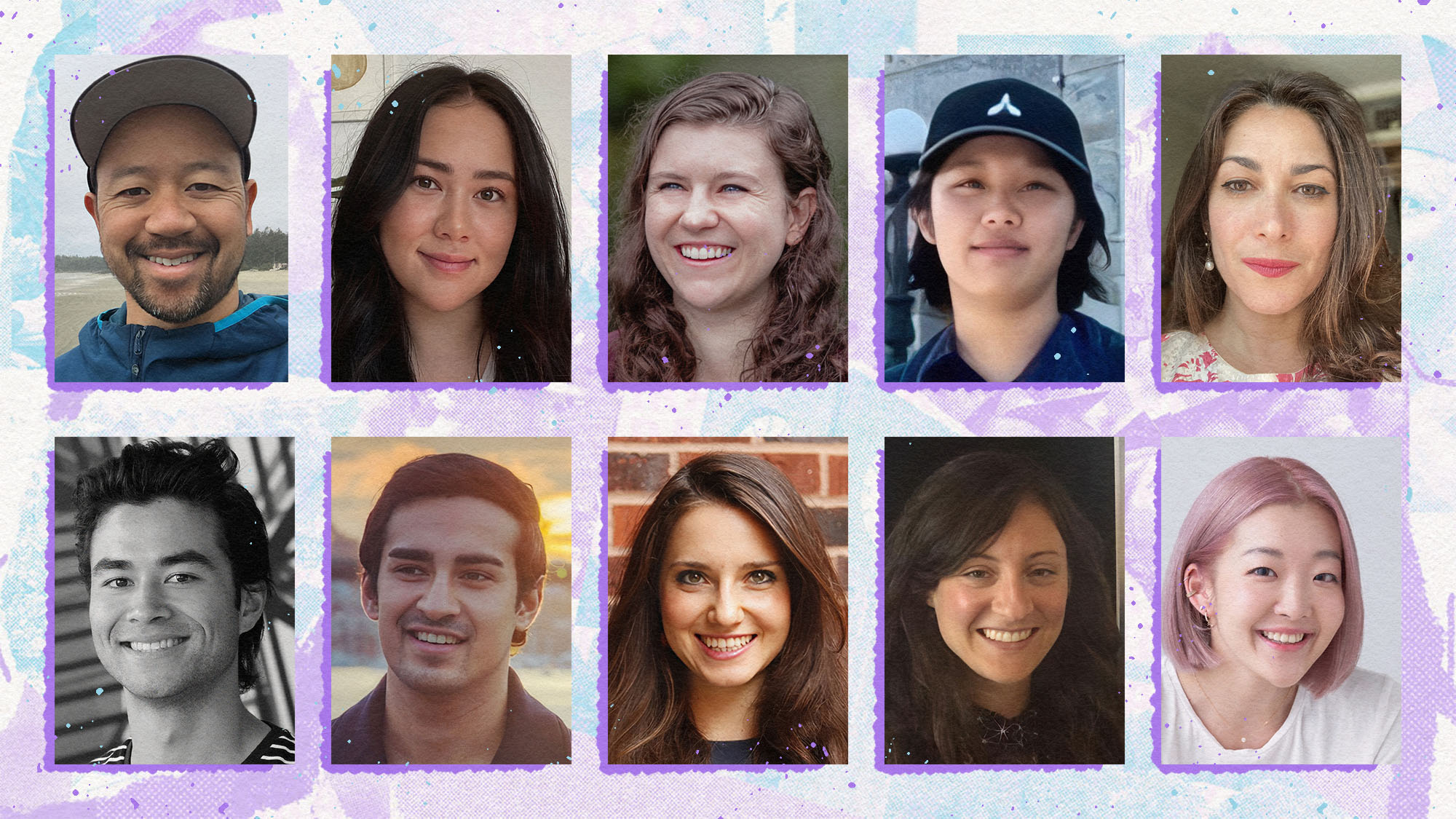

Your UBC journey doesn’t end with graduation. In fact, it’s just the beginning. As you graduate, you become part of a global community of over 100,000 Arts alumni—that’s 100,000 potential mentors and friends; 100,000 stories; and 100,000 lessons learned.
To help you in the next step of your journey, we spoke to Arts alumni to distill ten pieces of wisdom for the Class of 2024.
1. Find work that aligns with your values
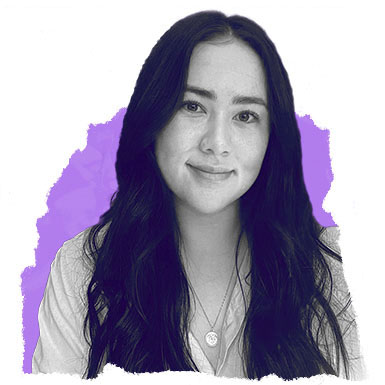

Carmen Watson
In the years following graduation, Carmen Watson (BA ‘19, Honours History, International Relations) prioritized finding work that was meaningful to her. “I made a conscious choice to work in fields that I believed in, supported, and wanted to contribute to their mandate. As much as I wanted a good salary right out of school, my priority was landing a job where I could feel proud of the work I did.”
Following her own advice, Carmen now works as an Advisor – Equity, Diversity and Inclusion for Vancouver Coastal Health and has founded her own consulting company Anavaan by Carmen Watson.
2. Learn what networking really means


Kamal Rosode
We often think of networking as a daunting aspect of finding a job. It can be hard to know who to reach out to, but making professional connections in your field doesn’t have to be intimidating. “Don’t be scared to reach out. More often than not, professionals will […] want you to succeed and will go above and beyond to be a champion for you,” says Kamal Rosode (BA’20, Political Science/Economics). Kamal also notes that with the right approach, it is not as scary as you might think. “When you do reach out, make it personal, concise and specific.”
Networking can also be more simple than you think. “During my time at UBC, I joined different clubs and groups which was great experience in terms of leadership and communication skills, and expanding my friend group (and network).” Stay in touch with people you already know, including the friends and professors you’ve built relationships with throughout your undergrad—they are also a part of your network.
“If you see someone with a career that you think is interesting, you can email them and ask them for 15 minutes of their time to ask three specific questions based on their career… People who you might think are way out of your league will probably say yes to you.”
3. Be open to unexpected directions
The path after graduation isn’t always what you might have expected when you started your degree. This was certainly true for Christina Morrow (BA’21, International Relations), who took part in the Arts Entrepreneurial Co-op (E-Co-op) program starting in her third year at UBC, where she had the chance to test out a business idea eventually, turning it into a full-time role. Now she’s the founder of Wicked Rose, developing high-performance, Canadian-made, environmentally conscious activewear.
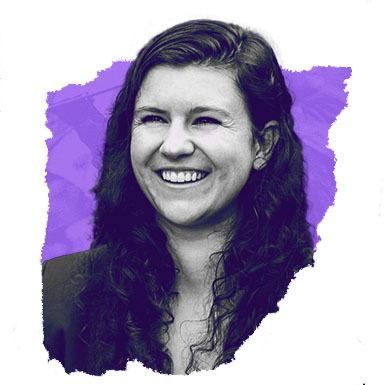

Christina Morrow
“I came to UBC uncertain of what I wanted to do, but International Relations sounded the most interesting to me,” Christina says. “In my third year, I realized that I wanted to make the transition into the business sector, so I pursued co-ops that I thought would help me make the jump.”
Being patient and curious can lead you in directions you never imagined. “It hasn’t been a smooth journey to get here, but I’m so happy with the progress that the business has made and the brand I’ve built.”
“Don't be discouraged if everything doesn't go to plan following graduation. Be open to any new experiences or unexpected opportunities that may arise.”
4. Leverage your Arts degree
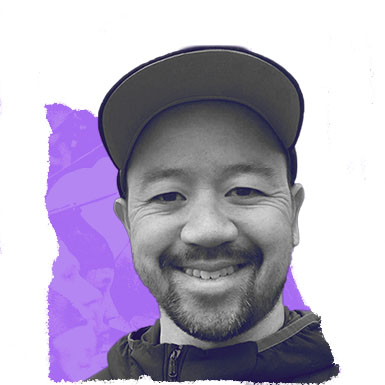

Adrian Liem
Adrian Liem (BA’00, Psychology) chose psychology because he wanted to understand the foundational question of “why we do what we do.” Inspired by a professor who taught organizational behavior, he has been applying those principles to his work throughout his career, and in his personal life too.
“From what I have observed, a psychology degree is as valuable as you make it,” Adrian says. “The real value is in drawing connections to the things you continue to learn and observe throughout all aspects of your life … There is a strong foundation that you can continue to build on as you go through new work and life experiences, but it’s really up to you to make those connections.”
As an Arts alum, you possess skills that will continually open doors throughout your career. From written communication, critical thinking, to cross-disciplinary connections, you may be surprised by the myriad ways your Arts skills can be applied.
“Embrace uncertainty. Write your own story. Be relentlessly curious. Reject any crippling pressure to make the 'right' move. There are no wrong decisions. Just decisions.”
5. Don’t take rejection personally
When Tomo Yamaguchi (BA’18, Political Science) graduated, she found herself frantically Googling—“a whole lot of desperate 1AM ‘how to send a follow up e-mail after an interview’ and ‘I have nothing on my resume’” she says.
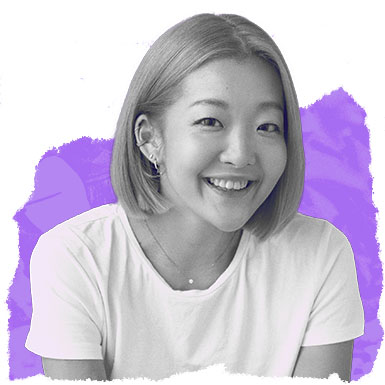

Tomo Yamaguchi
Over time, she learned to lean on her community, including her older sister.
“The most valuable piece of advice she gave me was to not take rejection personally and to move on swiftly. Though it was difficult not to get discouraged from the mounting number of rejection e-mails, I was able to keep at it because I learned not to equate interview results with my self-worth.” Tomo has since carved her own path, and is now working as a freelance consultant—supporting startups and larger companies with recruitment, marketing, and strategy.
6. Leverage interviews for learning
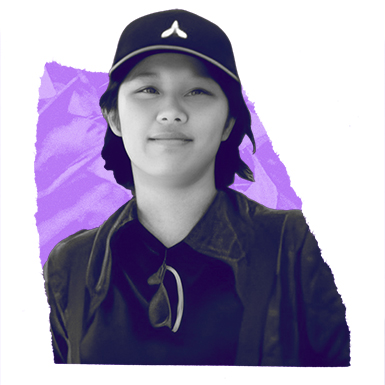

Cindy Lin
Getting ready for your first interviews after graduation can be daunting, but you can also leverage them as learning opportunities. Cindy Lin (BA’19, Psychology), found that the numerous interviews she went through helped her identify her strengths and weaknesses, better preparing her for subsequent job applications.
“I went through various types of interviews—phone, Skype, and in-person with a written test,” says Cindy. “Each instance provided me with valuable insights and learnings, helping set me apart from my peers in terms of job search experience.”
There are many ways you can hone this skill, such as asking your friends and family to interview you, or trying to secure interviews for roles where you might not be as vested in the outcome. That way, you can feel more prepared when interviewing for your dream job.
7. Create a portfolio
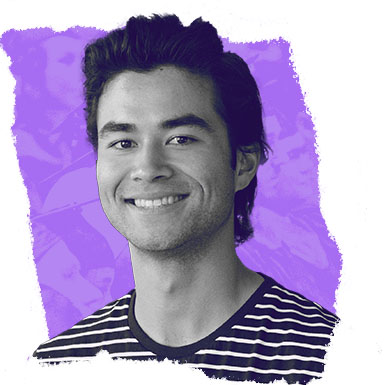

Hugh Knapp
In addition to a resume, a portfolio can help demonstrate the skills you’ve developed throughout your education. “A paper that you wrote could go into a portfolio; it does not need to be strictly visual,” says Hugh Knapp (BA ’18), a sociology graduate who has worked as a design researcher at Aritzia and IBM.
“The portfolio helps in job interviews as they give you the opportunity to drive discussion and tell stories about your experiences and capabilities in a really engaging way.”
8. Tap into UBC career resources


Lina Zdruli
Even though you may be leaving campus, the UBC community will always have your back. “Tap into ecosystems and resources. There’s no reason to do it by yourself,” says Lina Zdruli (BA’14, International Relations).
As a UBC alum, you have exclusive access to a vast array of services and supports through the alumni UBC Career Development program. There, you can explore job opportunities, and find support and practical tips for job hunting, ways to talk to employers about your Arts degree, job boards and employer info sessions.
“Attend every conference and panel you can outside your field,” says Lina. “You never know what new topic can change the direction of your interests, or which encounter can open a once-in-a-lifetime opportunity.”
“As a student I had so much support from alumni, whether it be through co-ops, career or academic advice, and I am forever grateful for the community UBC has given me. Stay in touch with the community and give back in whatever ways you can!”
9. Follow your gut
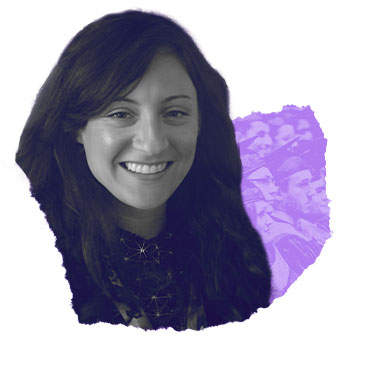

Rebecca Dirnfield
Even after graduation, the journey of learning continues, especially learning to understand your professional self. These newfound insights might nudge you towards paths you hadn’t considered before. Rebecca Dirnfeld (BA’06, History), advises embracing these nudges.
Rebecca was initially set on a career in academia, but during her graduate studies she discovered that her strengths lay in advising students rather than teaching them. Despite the seemingly well-defined career path, she utilized her self-awareness and skills to pivot.
“An Arts degree provides so many wonderful transferable skills,” she says. “Consider what these are for you, and where your strengths lie. […] Listen to what the inner voice that is guiding you is saying, and engage with it.”
10. Don’t sweat it
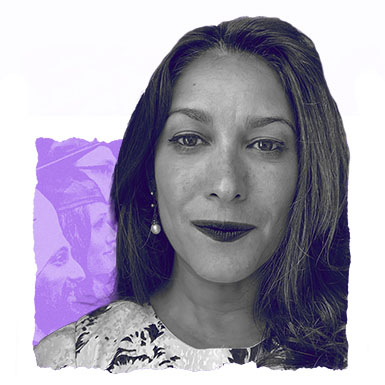

Desiree Abid
Everyone’s journey after graduation is different. Sometimes it takes a bit of time to figure out your next steps, and that’s okay.
This was the case for Desiree Adib (BA’97) a political science and geography graduate who now works with ABC News as a Senior Editorial Producer. She acknowledges that it would have been nice to slow down and enjoy the journey a bit more without stressing out so much about immediately finding her footing in the “perfect” career.
“I would have told myself not to worry so much about figuring out my path because this will happen eventually,” says Desiree. “I was really worried about getting a good job or the right job right after graduating, and I wanted to do this right away. I was in a big rush, and I wish I hadn’t been. […] Living life to the fullest and enjoying what life has to offer is important. Stop and smell the roses!”
Go forth Class of 2024! We’ve got your back.
From practical workshops to alumni networks – we’ve collected resources to help you launch your career as you start your next chapter.
